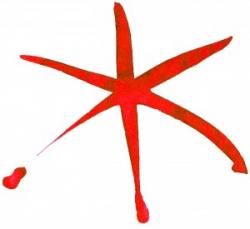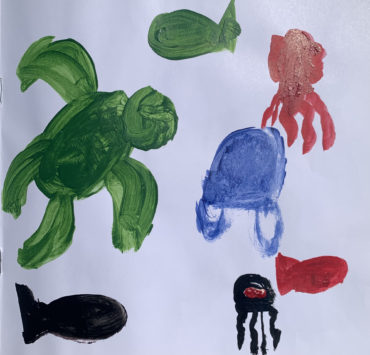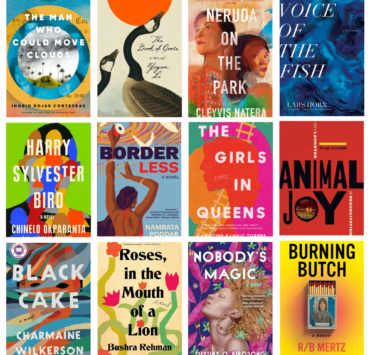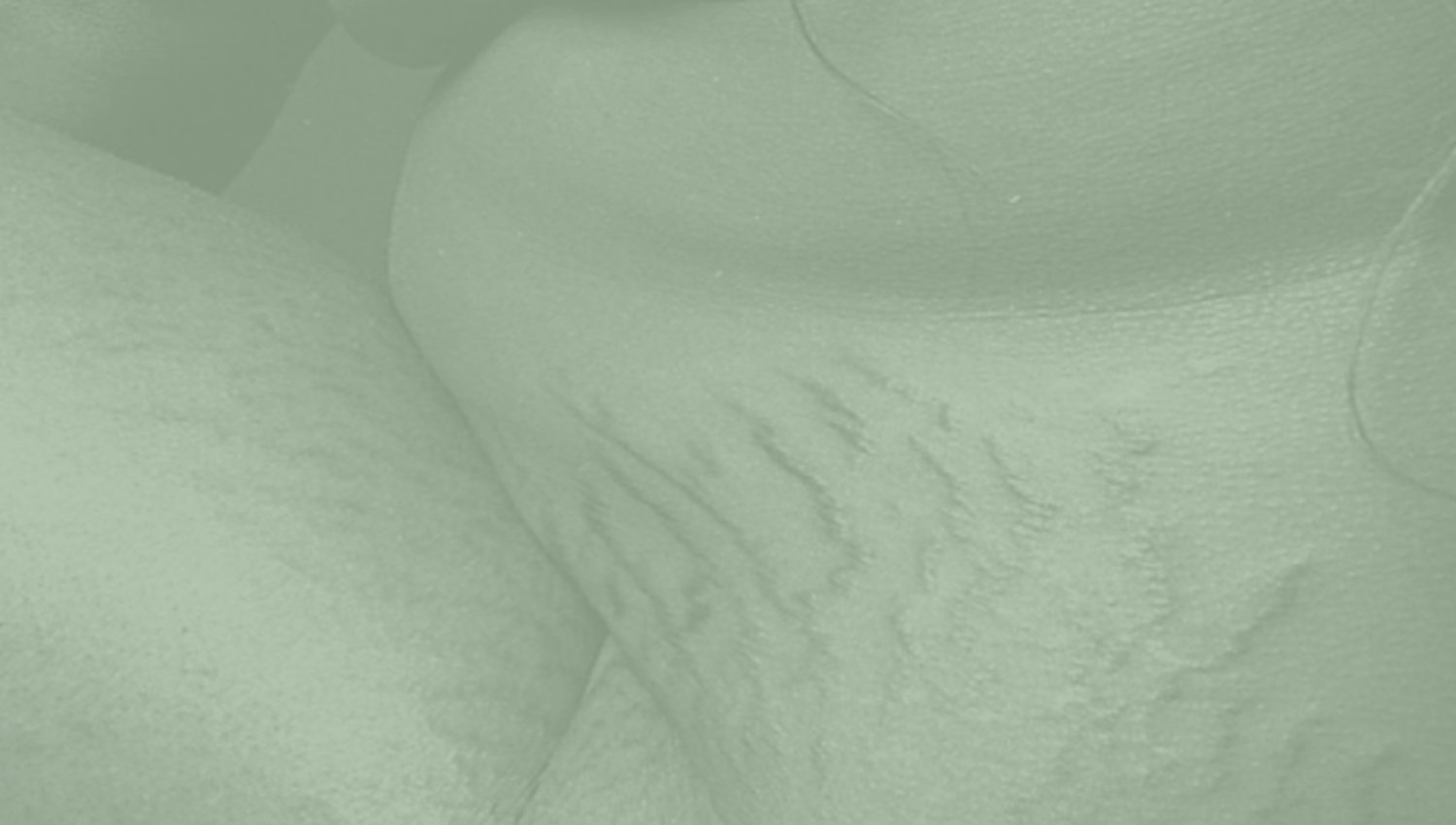
We are thrilled to share our September 2022 issue, Mothers Unearthed, co-Edited by Emily Raboteau and Tanya Shirazi. Please see below for a conversation with the editors and the table of contents, including pieces available to read online now.
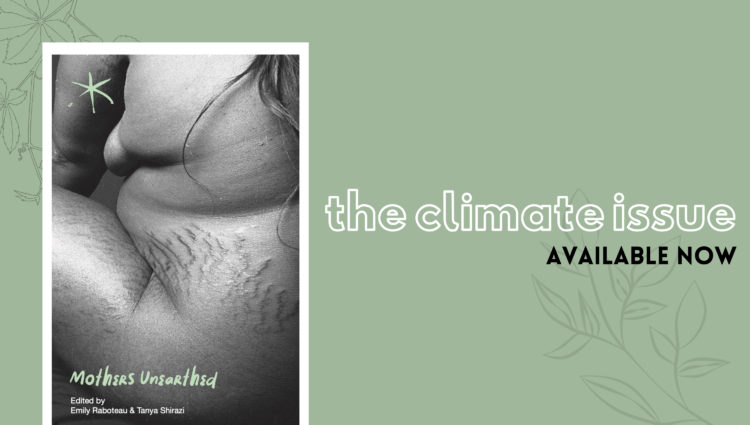
AVAILABLE NOW IN PRINT VIA:
Bookshop.org | Amazon.com | Abe Books
Conversation with the Co-Editors, Emily Raboteau and Tanya Shirazi
ER: This issue of Aster(ix) came about in tandem with a folio I edited for the Kenyon Review, called “Angry Mamas.” I wanted to make a space in that publication for writers to express anger about the climate crisis from the perspective of motherhood. I myself have been increasingly writing from this standpoint, because it feels urgent. I solicited many writers I admire to contribute. So many women submitted work that there was not enough space to include all of their contributions in that frame, despite the work being generally excellent and timely. How could I, in good faith, reject urgent and excellent work? I complained of this problem to Angie Cruz, Aster(ix)’s founder, who made me see it as a good problem. Look how many writers have something to say about this! Her solution was to publish all the work that could not fit into the Kenyon Review folio into a companion issue of Aster(ix). This Mothers Unearthed issue is therefore a sister of and in conversation with the “Angry Mamas” folio in the Kenyon Review, coming out around the same time in the summer of 2022. Having curated the works in this volume, I am grateful to Tanya Shirazi, who stepped in to do the heavy labor of editing the collection. Tanya, what did you notice in your role as editor that holds these unique pieces together to make a whole?
TS: It was such a joy to work on this issue, Emily. The works in Mothers Unearthed show how mothers re-experience and witness environmental (and social) catastrophe. They excavate and reinscribe the meaning of protectors as mothers. The fear, anger and cautionary hope is palatable in each of the pieces. Each work shows how these different crises impact their children. It’s horrific to contend with what kind of world our children will inherit, what we leave behind. The mismanagement of the COVID pandemic pulses quietly throughout several of these works, as a reminder that we’ve already been marked in a way that makes it impossible for any of us to look away, to ignore. In what ways do you feel the perspective of motherhood has layered the work?
ER: Well, I think it allowed some of the writers to be messy, emotional, experimental, and engaged on a heart level instead of a purely analytical or data-driven level. What about you? Obviously, there are a few different genres reflected here. Not just nonfiction, which is my wheelhouse.
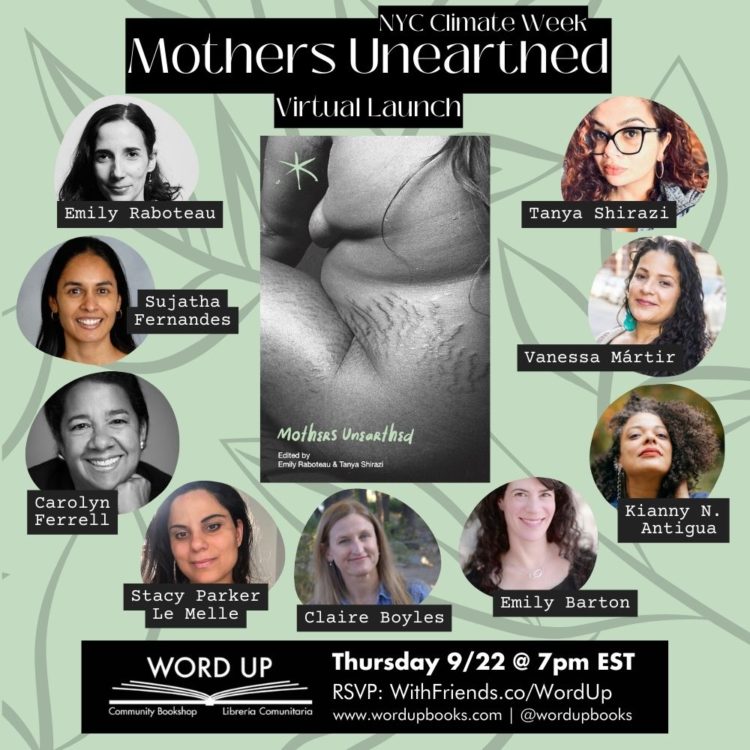
RSVP here.
TS: What drew me the most to these pieces were how the children were the loudest and most honest archivists of our times. There’s so much care and catharsis on the page. The title Mothers Unearthed perfectly sums up the movement of the pieces: they’re urgent, require an intense amount of excavation, and provoke the readers so keep digging. Writing from the point of view of a mother must be so tricky. Our kids are so attached to who we are, and the way they process the world deeply affects us. I think it’s that honest fear that adds so much momentum and care to the pieces. There’s an immediate need to care, we can be persuaded by data and statistics that show us our climate crisis is dire, it’s already here. Our government has failed us when managing a global pandemic, the numbers are our evidence. But it’s terrifying knowing our children are impacted by these choices. There’s comfort knowing that our actions can still have some positive consequences. Like Claire Boyle States in “Making Our Own Weather”, “we are, all of us, already making our own weather, and we have choices, and there is still time.” The fiction pieces… Deesha Philyaw’s “Concerning the Sea Stars” and Chika Unigwe’s “Water” contending with the hardships of motherhood with unreliable partners, to the hilarious and dark narration of “The Recycling at Isaiah Gardens” and the lackluster attempt to control tenant behavior to more desirable practices. It’s some dark, funny, honest work.
ER: Yes, I appreciated the humor in Carolyn Ferrell’s story that you just referenced, and some of the other pieces, since humor is one of our best survival mechanisms given the compound crises our children are inheriting. Gardening is another. That’s why I really loved Vanessa Martir’s essay, “Dreaming a Sacred Garden.” It was important to me to solicit work predominantly from women of color whose traditions and legacies of historical survival allow for registers beyond anxiety. When your ancestors have survived enslavement, for example, Jim Crow, incarceration, internment, civil war, or other seemingly insurmountable odds, the climate crisis does not appear to be the first existential threat.
TS: Deesha Philyaw “Concerning the Sea Stars” has some really dark humorous moments around parenting and uses social media to showcase the fallout of a romantic relationship. Kianny Antigua’s “She Doesn’t Want to Be Called a Human” is unflinching in involving her seven-year-old, Mia’s perspective. The use of her daughter’s poetry, drawings and her little idioms make a great point in showing us who’s to blame for our demise: ourselves! Mía’s right, “humans suck!” Nimmi Gowrinathan’s “Unconscious” son’s question, when he realizes the climate crisis will be responsible for the extinction of marine life, “How will my grandchildren fish?” made me laugh at his foresight of caring for his non-existent children, but also drew some shame out of me, for sure.
Yes, I think that the selection of women writers of color has allowed for the curation of pieces that already show inherited injustices you’ve mentioned and compounded with immediate loss. From forest to wildfires, lives to the COVID-19 pandemic, our sense of safety in the face of social injustice, climate crisis, and public health. It’s very personal, and all on these pages.
Mothers Unearthed is here, go read!
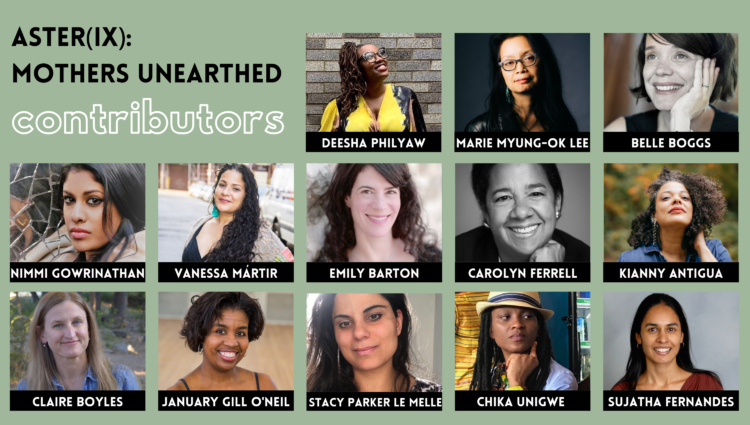
Mothers Unearthed ◌ Table of Contents
- “Climate Refuge” By Sujatha Fernandes | Nonfiction | Read online now
Many people, especially migrants and the working class, have been pushed to the periphery of the city where they are at greater risk of extreme heat, bushfires, and floods. Vasant, his partner and three kids have to evacuate their house multiple times during the bushfires, for weeks at a time. - “Concerning the Sea Stars” by Deesha Philyaw | Fiction | Read online now
Remember how Cleo called to us as she bounced, “MommyDaddy, look at me, MommyDaddy!” because we were, for her, a single unit of love? - “Unconscious” by Nimmi Gowrinathan | Nonfiction | Read online now
His eyes widened when I told him about the sea. “It really turned black? Thirty feet high?” Questions to confirm what he already knew. His face crashing with a sudden realization: “Think of all the fish that died.” - “Dead Deer” by January Gill O’Neil | Poetry | Read online now
White tail. Little peninsula.
Nights ago, I startled you with my headlights - “Making Our Own Weather” by Claire Boyles | Nonfiction | Read online now
Pyrocumulus clouds rise above fires that burn with special intensity. The clouds are multi-colored—shades of brown and grey and white, gilded with silver—as beautiful as they are terrifying. - “THE RECYCLING AT ISAIAH GARDENS” by Carolyn Ferrell | Fiction | Read online now
Do not spy or repeat stories on neighbors in the name of climate changeability. That means you Miss Fields of 5G. Miss Sharpe of 2G don’t have nothing to do with you or your Paper or Cans or Bottles. - “Seasonal Affective Disorder” by Marie Myung-Ok Lee | Nonfiction | Read online now
I participated in a kimjang, a late-autumn ritual of mass outdoor production of kimchi for winter… It’s not all done on a specific day but is more like the intermittent synchrony of fireflies. You’ll just know when it’s time. - “Water” by Chika Unigwe | Fiction | Read online now
Mmuofunanya ignored him and whispered over and over again, Mmiri. Mmiri m. My own water. She would name her child. - “She Doesn’t Want to be Called a Human” by Kianny N. Antigua | Nonfiction | Read online now
More than my daughter, she is the mother, the voice of reasoning, who didn’t wait for others to make a move first. She, as Mother Earth, is angry, and who wouldn’t be? Why wouldn’t they? Why wouldn’t She? - “Prime Coats” by Stacy Parker Le Melle | Nonfiction | Read online now
We agreed to twenty dollars. We bought men’s and women’s underwear, and a baby’s blanket. I wished we could have bought more, but we were in credit card debt as it was. There had to be limits. Right? - “Dreaming a Sacred Garden” by Vanessa Mártir | Nonfiction | Read online now
I was in my forties and a mother myself when mom revealed how she learned to garden. Up until then, her stories of her childhood in Honduras were of hunger and suffering. We were poor, but I didn’t know the hunger mom spoke of. - “Basil” by January Gill O’Neil | Poetry | Read online now
Because some days there is no mercy,
I’m counting my remaining supply - “Spaceship” by Emily Barton | Nonfiction | Read online now
“If I cast my mind forward into the future I won’t live to see, I can at least imagine the spaceship, my kids and my neighbor’s kids watching it launch, remembering their mothers as they do their small part of tikkun olam, repairing the world.” - “We Were Warned” by Belle Boggs | Nonfiction | Read online now
“I can’t die anyway,” I said, my anger dissipating just a little as I realized this complicated, impossible truth. “My kids need me.”






